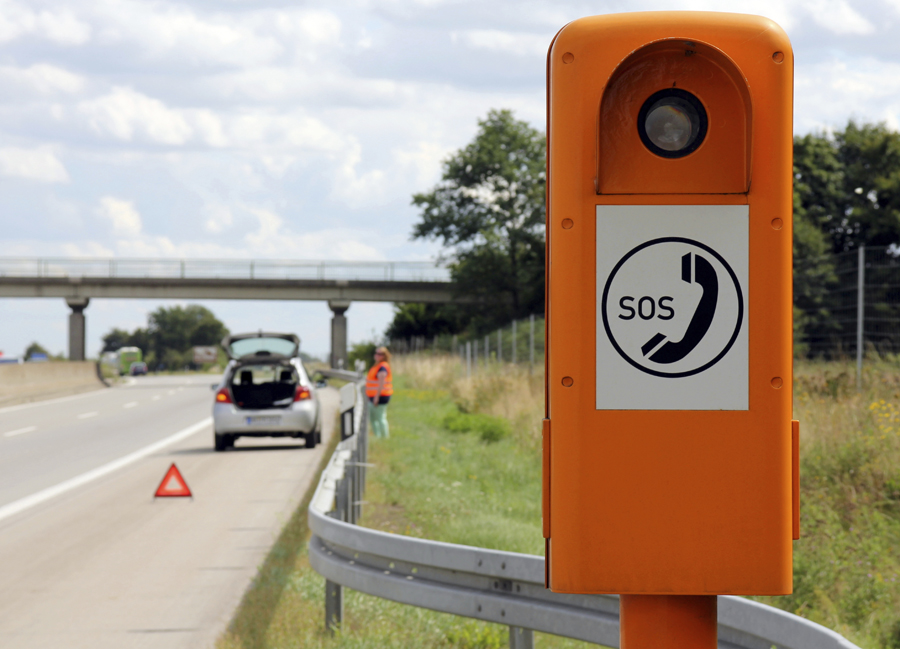Fleet Management tips to keep your drivers safe
14/04/2016 00:00:00by Paul Fincham14/04/2016 00:00:00Fleet Management tips to keep your drivers safeBluedrop Services

Keeping your fleet driver’s safe is a key priority for Fleet Managers. There are a number of alarming statistics supporting why you need to address fleet management safety highlighting just how often accidents involving business vehicles occur. First and foremost employers have a duty of care to their staff in terms of providing them with a safe working environment. In addition to protecting your employees and avoiding any harm or injury, even minor accidents will result in costly maintenance and downtime that you will want to avoid.

Here are some tips on how to make sure your drivers are as safe as possible on the road.- Regular vehicle checks
Regular maintenance and inspections will keep your vehicles in a safe condition as well as keeping vehicle off road (VOR) time to a minimum. A well serviced vehicle is less likely to encounter problems on the road resulting in possible accidents. Ensure that your drivers understand the importance of this and the need to highlight to you if a regular scheduled maintenance check is missed. If you are using some form of telematics system or central fleet management system this should be logged and highlighted easily to ensure this does not happen.
It is also important to encourage your drivers to take daily vehicle checks before driving. Checking tyres, oil, fuel and lights will help to ensure the main areas likely to cause problems are in working order. In addition to making these checks the driver’s responsibility it is important to take responsibility yourself and introduce regular spot checks as a reminder to keep them on their toes.
- Introduce a clear mobile usage policy
One of the most common forms of distracted driving is the use of a mobile device whilst driving. Studies have shown that use of a mobile phone whilst driving increases your risk of being in a crash to the same level as drink driving. Anything that takes your eyes off the road doubles your chances of being involved in an accident.
Many suppliers offer technology to combat distracted driving, such technologies can help to decrease dangerous accidents, limit company liability and even help to lower fleet insurance premiums.
Put your zero-tolerance anti-distracted driving policy in writing and communicate this regularly within your fleet. Even hands free solutions can cause distraction so you may even want to consider systems that lock devices whilst in motion and highlight in your policy how to deal with contacting drivers whilst in the field, which could involve an alert for them to pull over when convenient and call the office.
- Effective route planning
Ensuring your drivers have enough time available to complete their journeys can limit the chances of them taking risks as well as making your business more efficient. Investing in a vehicle tracking or GPS system can also allow the driver to avoid any potential delays or hazardous routes.
- Provide each driver with a Fleet Safety Kit
A fleet safety kit can be in-expensive and easy to put together. Consisting of items such as spare tyres, screwdriver, wrench, pliers, road flares, reflective triangles and first aid supplies, they will ensure your drivers are prepared in an unexpected emergency. Don’t forget to train them in how to use all items!
- Alcohol and drug testing
Whilst you would hope that your drivers would not put themselves and others at risk by driving whilst under the influence, there are unfortunately many cases where this does happen. Particularly in light of the new drug driving law, it is best practice to implement regular spot checks to highlight the company stance on this and make drivers aware that they could be tested at any time.
- Provide regular driver training
Hard acceleration, idling, inconsistent speeds, tailgating, and hard braking are all bad driver habits that can be corrected with driver training and/or education. Even once training has taken place, bad habits can creep back in so it is wise to consistently provide training to ensure the safety of your drivers.
Many driver training providers quote a reduction of up to 15% in fuel costs as a result of driver training and believe that defensive drivers are 20% less likely to be involved in a collision, not to mention the savings you can make in maintenance and repair.
- Offer competitions and incentives for good driver behaviour
Offering driver incentives as part of an overall driver safety and performance policy for fleets encourages good driver performance and reduces risk of accidents. Competitions are a motivational way of driving continuous efforts to strive to improve performance, reducing accidents and minimising environmental damage whilst also having a bit of fun. Rewarding those who consistently perform well over a period, can help to encourage a long term culture of safe driving.
- Be prepared for accidents
Finally, it is worth stating that all the procedures and policies in the world cannot always prevent the inevitability that accidents do happen. Having a clear accident procedure in place that your drivers know inside out will help to reduce the severity and mitigate any losses.
Return to blog menuWant to find out more about Bluedrop's Fleet Insurance?
Call our friendly team now for the right insurance cover - at the best price
+441489780491
Calls recorded for training and quality.



 Privacy and Cookie Policy
Privacy and Cookie Policy